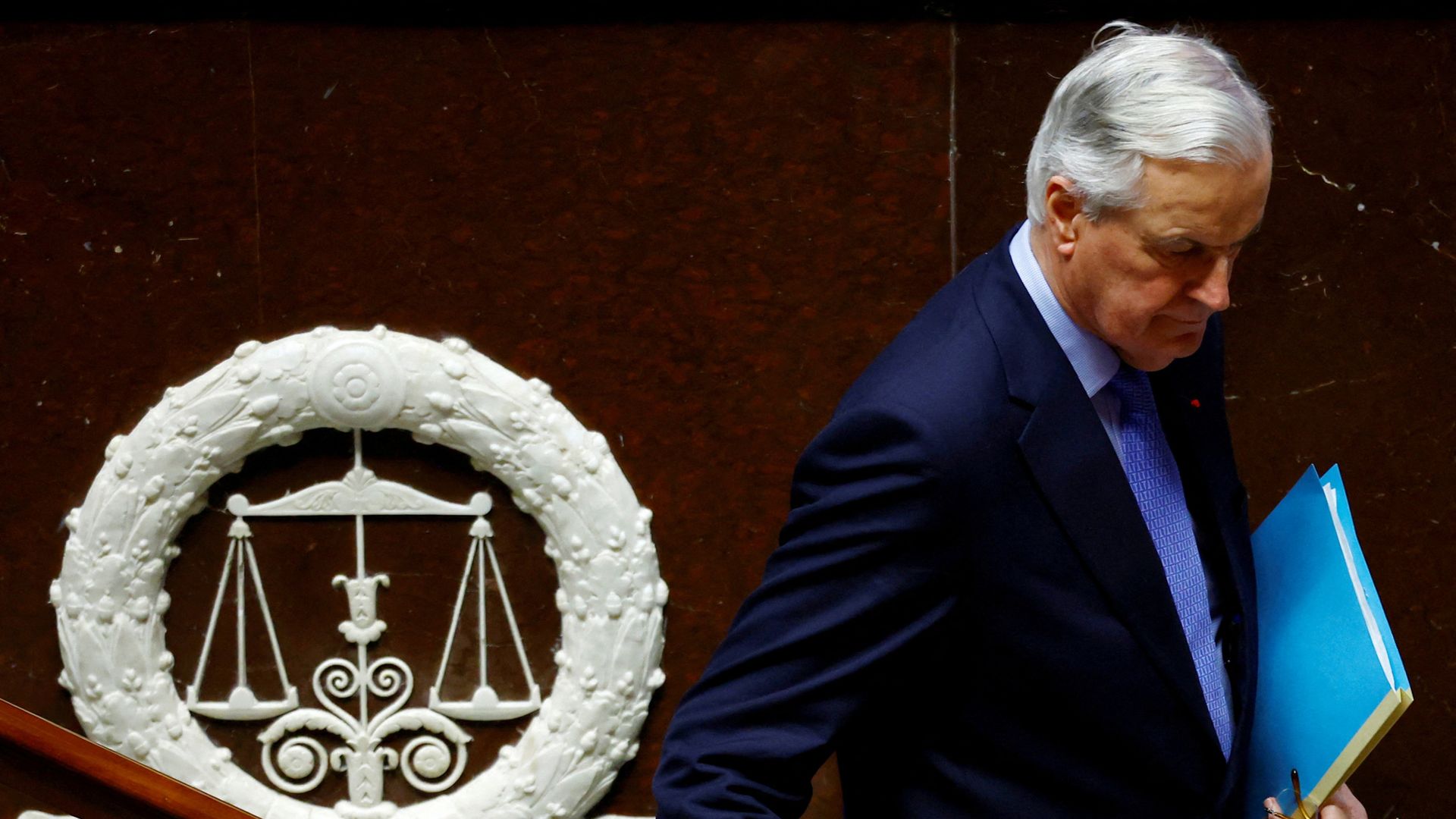The French government has collapsed after prime minister Michel Barnier lost a vote of no confidence.
It follows Mr Barnier’s decision to use special powers to force a social security budget through the lower house of parliament without a final vote after a last-minute concession was not enough to win support from the far-right National Rally (RN).
In the end far-right and left-wing lawmakers joined forces to back a no-confidence motion in Mr Barnier and his government with 331 votes in support of the motion.
It marks the first time a French government has lost a confidence vote since 1962.
France latest: Follow live updates
Mr Barnier, formerly the EU’s chief Brexit negotiator, is expected to tender his resignation and that of his government to President Emmanuel Macron shortly.
Marine Le Pen, president of the National Rally party, said after the vote that she is not calling for Mr Macron’s resignation but “pressure is piling up”.
French government heading towards collapse as PM Barnier faces no-confidence vote
Two dead and more than 30 injured after coach crashes in Pyrenees
First glimpse inside restored Notre-Dame cathedral five years after devastating fire
Mr Macron insisted he will serve the rest of his term until 2027.
However, he will need to appoint a new prime minister for the second time after July’s legislative elections led to a deeply-divided parliament.
The escalating political crisis in France has threatened to send the eurozone’s second-biggest economy into uncertain territory.
It comes as a time of tension in Europe, with the imminent return of Donald Trump to the White House and the war in Ukraine continuing to drag on.
International affairs editor
He was meant to be the man to dig Emmanuel Macron out of a hole.
The skilled negotiator who ran rings around the British during the interminable Brexit negotiations.
Michel Barnier’s short-lived spell in power began with some promise. The far-right French leader Marine Le Pen said he was someone she could do business with, but the honeymoon was short-lived.
Mr Barnier’s rivals smelled blood and rounded on him. They rejected attempts to bring pragmatism to the task of resolving France’s mounting fiscal crisis. In frustration, he tried to ram his plan through parliament, triggering a vote of no confidence.
He has now paid the price after a long illustrious career in French politics and has become the first prime minister to lose such a vote since 1962. The hole he was meant to extricate his master from has only deepened.
His former British antagonists in the Brexit negotiations may have a feeling of schadenfreude, others may be more sympathetic.
His master, President Macron, must now find someone else to take on the job, which could be seen as a poisoned chalice. They will find it equally challenging trying to resolve the impasse.
France spends far more than it brings in through revenues, and that deficit is unsustainable, says the European Union. But the longer this instability goes on, the cost of borrowing for the French state could only increase, potentially leading to a spiralling crisis.
And the fate of the country’s president is central to all this. Emmanuel Macron says he will stay in the job until 2027 and his office is vested with great executive powers under the constitution of the Fifth Republic.
The more he wields them though, the more his enemies will make the charge he is acting undemocratically. That may ease the far right’s accession to power should he end up being forced to resign. There is a huge amount at stake.
This breaking news story is being updated and more details will be published shortly.
Please refresh the page for the fullest version.
You can receive breaking news alerts on a smartphone or tablet via the Sky News app. You can also follow us on WhatsApp and subscribe to our YouTube channel to keep up with the latest news.






